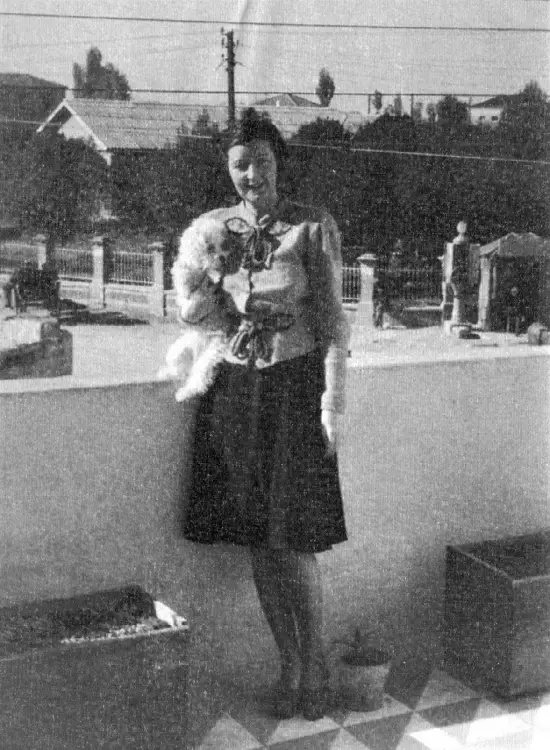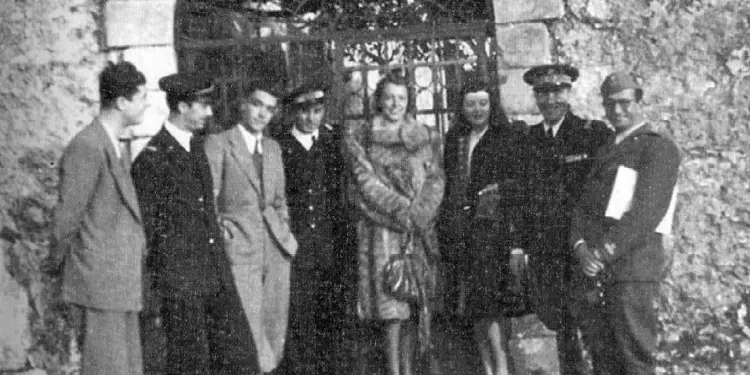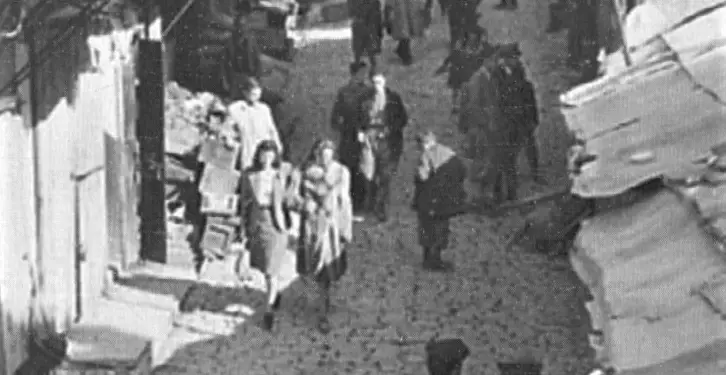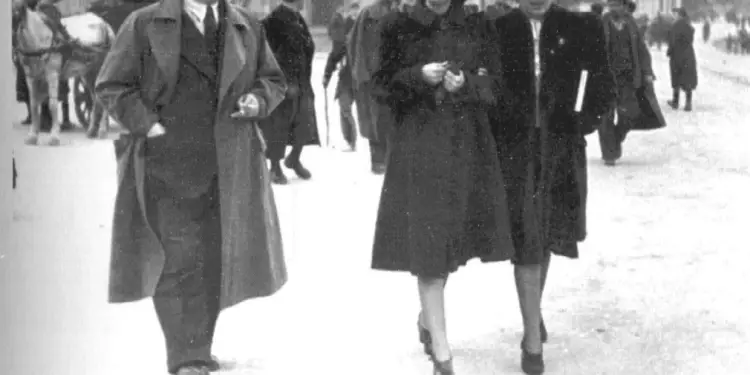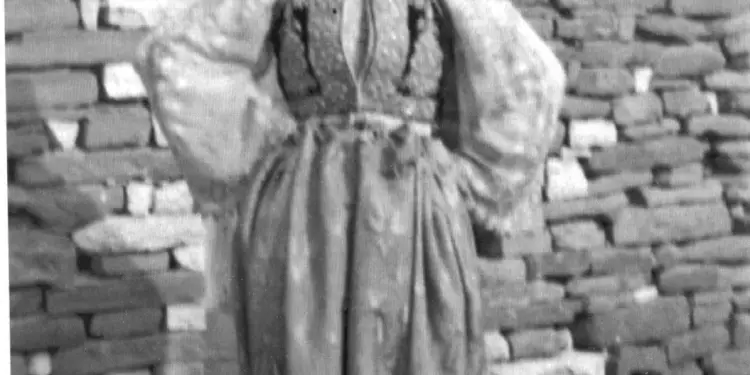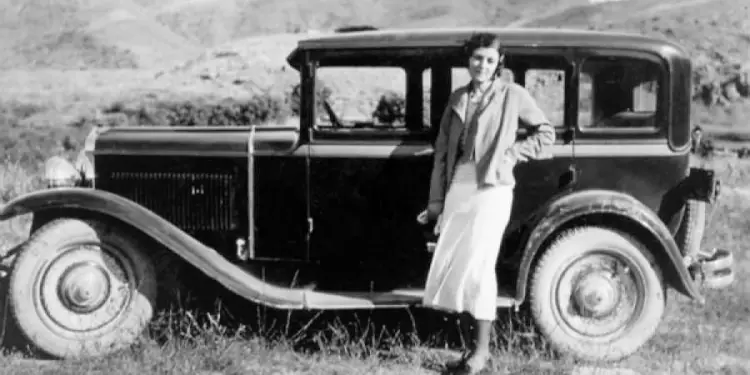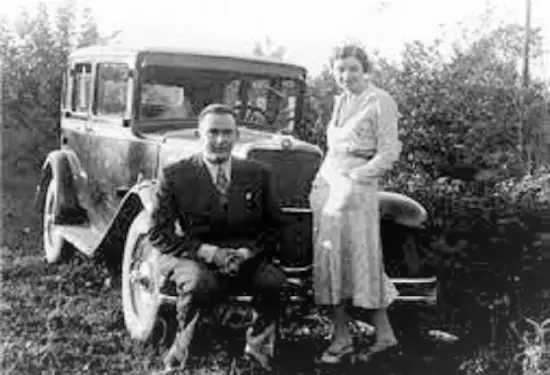By Aldo Renato Terrusi
The twelfth part
Accueil
Memorie.al / Fiumicino Airport. Alitalia’s ‘MD 80’ plane is ready for flight. It’s Saturday, November 6, 1993. 11. 25am. The commander received approval. The flight attendants remind us once again to fasten the seat belt. The two engines are brought to maximum power, while the noise becomes muffled and deafening. Buttons and controls are tested one last time according to flight procedures, the brakes are released, the faster and faster movement begins, the acceleration slams the passengers into the back, the plane takes off. I feel an invisible force lift me up, leaving me suspended in the void. I look around to see if the other passengers have the same feeling as me. Some read, some look out the window, some are indifferent, some barely sit still and some, frozen in their seats, let their fears show. With a wide change of direction, the plane rises in altitude and heads towards the radio beacon of Bari, then straight to Tirana, our destination.
Angel Kokoshi continues:
“After the election of the democratic government, I wanted to get involved in the Association of former Political Persecuted. In this way I try to help those who are still alive or the relatives of those who are no longer alive. This work has already become my life’s goal. Helping families looking for the remains of the missing makes me feel closer to my loved ones. I really hope we can identify your father’s remains, buried at Burrel: it would make me very happy. God does not differentiate between Christians or Muslims, between Italians and Albanians. God is everyone’s. Praise be”.
We don’t dare to ask questions, we don’t manage to utter a word in front of this surviving man, but we know that next Friday we will go to the infamous prisons of Burrell with a special permit, which the Angel has obtained for us with great effort, by the Albanian government authorities. It’s almost lunch time, so I invite the guests to the restaurant, but no one accepts: Angel’s wife is not in good health, so he has to hurry home, while Toli and Pierxorxho have to go back to the consulate. So I insist on at least some aperitif and everyone accepts this turn. After mutual congratulations, we leave the meeting for Friday at 09.00 before “Dajti”. In the afternoon we decide to go see the house where we lived in Tirana. We head there with a confident step, as my uncle remembers the way well. The villa is outside the center and to get there, we pass through the streets still full of pits and irregularly built houses, without any regulatory plan. We walk parallel to the Lana canal that crosses perpendicularly the great boulevard “Dëshmorët e Kombit”.
On the bank of the canal, there is someone tending sheep tethered to their feet. We pass by an open market with classic stalls selling all kinds of things. The view is mostly poor and so chaotic: fruits, vegetables, garden produce, eggs, are often piled up in open pieces on the floor; pieces, carpets, curtains are hung on a long railing separating several buildings, which serves as a support and looks like a wall with many paintings, compact and messy. Carts more or less loaded with furniture and various materials are parked as if they were cars, only in this case their engine is a mule. Various activities take place on the sidewalk, such as repairing bicycles, shoes, rain umbrellas, gas machines, refrigerators, watches…! People move between stalls and mats, give and take and buy with simplicity: there is not much merchandise, but it is what is needed. It can resemble a suburban market of any European city.
Along the road, a few houses here and there display the typical Albanian construction features of the early 1900s: four-cornered, symmetrical, substantial houses, one or two stories, many windows close together, brown stone masonry and stucco. We arrive at our former villa and my uncle immediately points to it: “That one there”! The small villa is surrounded by a high wall that prevents observation of the inner garden. It is almost well maintained: trees inside, flowers on the balcony, Plaster without cracks. Adjacent to the house, in a wide place, two abandoned and very old trucks rest. There are other well-kept and of course owner-occupied villas around. The environment, outside the private areas, is mostly neglected, rich with random greenery.
Uncle, in the wave of memories, describes what that apartment was for us.
“A worker of my company, Eti, rented us, for very little lek, a house still under construction, far from the center, to which you could go by crossing a narrow path. A house in the middle of the village built near a small stream, on the sides of which grew tall poplars. Quadrangular in shape, with exposed brick and masonry, unplastered inside or outside, this building had two stories and a basement. The windows of the first floor were closed with cardboard that had to be moved during the day to let in the light, while the windows of the ground floor were closed with nailed slats. The only balcony, above the main entrance, had no railings. A few spikes fastened to one side by an iron thread, constituted the entrance door; its scraping, whenever it was opened or closed, alarmed all the neighbors, the floor-tiles of the first floor being the only interior work.
We shared the bathroom with a married Albanian couple, who had only one room at the end of the corridor; our family had two rooms, the hallway and the kitchen. You, I, mother and great-grandmother slept in the biggest room, grandfather and grandmother in the smallest one. Each room was lit by a dim lamp suspended from the center of the ceiling. For winter heating, there was a practical wood-fired oven in the kitchen, which was kept on all day, and inside there was a special holder, from which they could get a liter of hot water.
In front of the villa was a yard where a truck and a car sat abandoned, probably destroyed during the war. Next to the yard ran a bad road that led to the hill. On the other side, parallel to the lane, was a stream with tall poplars. After we were expelled from Vlora in 1945, when his father was put in prison, we moved right here. At that time, after I had been called to the Albanian national team, in order to have more freedom in training, the municipality of Tirana entrusted me with the task of inspector of food types.
The other inspectors were all Albanians. In this case they had kept me at bay, but only because I served their purpose. It was about the verification of invoices and the regular operation of sales and purchases. Having an uncultivated field next to the house that no one took care of, I bought a goat, which I tied in the basement at night and took it to the nearby lawn to graze during the day. Since the milk was not enough for the whole family, I bought another goat. The cellar therefore held two goats with their two kids. All animals had to be reported to the authorities, however, each family could have more than two; if the number of animals was greater than two, the excess animal or animals had to be immediately made available to the authorities. So that we could have milk for the whole family and try to keep the goats from being taken from us by the central committee, I devised a strategy: taking one goat out to the pasture sometimes with its kid, and sometimes the other, so that everyone believed that we only had two animals when we actually had four.
Thus we were able to celebrate the holy Easter of 1946, with a roasted goat without arousing suspicion from anyone. The purchase of food, even with rations, could only be done at authorized cooperatives and with a tollon issued by the Central Committee. Here, too, there were long lines and desperately empty shelves. Of course, the black market flourished and sometimes you could find good meat or coffee brought in from Italy. Since I was part of the Albanian national team in the international tour of the Balkans, when we returned from the matches played in the transfer, I brought sugar, cocoa, marmalade and cookies – types of food that could not even be found in Albania. Among the various visits, I even wanted to go to the public slaughterhouse, and I was often given a leg of a kid or a lamb.
On these occasions, there was a big celebration at home, because those feet were cleaned and boiled very well by your great-grandmother Serafina, who made a wonderful soup with them. Since we had nothing else to warm ourselves with except the kitchen stove, during the extreme cold, we put a wooden net on the beds where the charcoal holder and the anointing were also hung.
Water hardly came to us and we often had to carry it with buckets from the public tap, sharing the embarrassment of long queues with other fellow sufferers. The women washed their large clothes in large tubs with fines and grated soap. A big bonfire was made in the field and the white clothes were boiled, which at the same time were sterilized and then rinsed, squeezed and left in the sun. One of the few amusements allowed was hunting. Our beautiful “Bereta” rifles were confiscated by the communist government, but with the help of some acquaintances I managed to get back an Old Italian rifle, with which to continue my passion.
I have taken you with me many times…! But we were always thinking about you. Many times, both Melisi and I have gone to the Central Committee to meet Enver Hoxha or to talk to one of his subordinates, but all in vain. Sometimes they didn’t accept at all, other times they told us to wait, but no one came, while other times we even faced brazen blackmailing behavior. Once Melisi accompanied Aurelia, who hoped to meet Enver in person and ask for her husband’s forgiveness in the name of their early friendship, but he excused himself by saying that: state reasons prevented him from being magnanimous: if he surrendered to her request, the power itself and its hierarchy would suffer. But later on, Aurelian was called several times by one of Enver’s henchmen who only made unheard proposals in exchange for a possible release of her husband”.
A shade of revulsion and anger appeared on my face so clearly that my uncle, putting his hand on my shoulder, was trying to calm me down. In my childhood memories, one thing that fascinated me and kept my curiosity burning was playing with the exploding water bubbles that kept falling from my grandmother’s kettle when she was cooking. Those ballerina bubbles were absolutely a mystery to me, they blew my mind and I spent hours and hours admiring them. The large open space in front, occupied by the Lorries, was a veritable playground for the children of the village. It was a narrow path from the center of the city that led to the mountains, went right next to our house, and seemed to end in nothing. I was very impressed…! On the contrary, I found the old trucks very attractive and every time I left the house, I asked permission to play with those mechanical monsters. Sometimes they even gave me permission and then I got into the driver’s cabin and pretended to drive the truck, checked the wheels, got into the trailer, smelled the oil that was still left in the tank; I was really mad with joy!
I particularly remember, given my attraction to war relics, finding and bringing home a mortar shell. Of course it was a disabled device because it didn’t have the fuse, but I knew that. It was pear-shaped with small wings that looked like tails. It must have weighed about two pounds, and I was extremely tired until I dragged the wonderful toy home. I remember showing up to my grandmother with that thing in my hand. Her terror must have been overwhelming, because she froze in place when she saw me. Of course, in order not to scare me, he didn’t say anything; he took the shell from my hands with the greatest care and hid it away from the house, while the great-grandmother watched over me. Later I found out that my uncle, preoccupied with other problems, had buried the shell near the stream. This adventure often became the subject of family memories when I was made excuses for my ‘flaws’.
Of course, I did not notice the hardships the family was going through, because, as much as they could, they tried not to miss anything. However, to the great surprise of my relatives, I liked it a lot, especially when it came piping hot from the oven, kalamboqi (corn bread), while others normally ate babanazi (black wheat flour bread). Twice a month, I went from Tirana with my mother to the Vlora prison, to meet my mother. In these cases, we brought food and medicine not only to my father, but also to his fellow prisoners. My father did his best to amuse me and from behind the bars he understood my rapid growth as he measured me and asked my mother about my changes in weight; he saw me as a very curious child who showed interest in everything around me, which made him very happy.
One day I was alone at home. I was playing in the corridor with a ball that my uncle had given me, when it was thrown and ended up in the room where the Albanians lived. I entered the dimly lit room and suddenly met two bright eyes staring at me motionless. I was so scared that I ran away with all four of them as fast as I could and went and hid in the kitchen. Here I met the great-grandmother who luckily entered the kitchen at that moment. I must have seen the fear in my eyes, because she asked me what happened to me. I didn’t open my mouth at all about what had happened to me, because I was ashamed of myself and the fear that came over me. Sometime later I realized that those glassy eyes belonged to a cloth elephant, but from that day on, every time I passed in front of that room, I looked around suspiciously: I was afraid that the evil-eyed animal might attack me from one moment to moment.
My uncle had an old, powerful Guci motorcycle that he used to go to work or practice on the sports field.
As soon as I heard the characteristic sound of the engine, I immediately wanted to get out of the house, get on the motorcycle tank and take a ride in the square in front. This wish was fulfilled almost always. Not infrequently, a two-engine Dakota flew around the house, at low altitude, taking Jacomo and his fellow footballers to the transfer games. My mother used to lift me to the window rail to greet them. Often my uncle would get on the saddle of my bicycle and together we would go to the small forest near the stream. I would fearlessly go into the barn to hear the song of the thrushes or the fluttering of the sandpipers, although very often I could not even see them. When my uncle shot, I covered my ears tightly with my hands, but I was the first to run to the dog that brought the killed bird.
Arriving at home, I threw the game on the kitchen table, all proud. Even when I didn’t go with them, returning from uncle and grandpa’s hunt with prey on the hood of the Jeep was always like a big party for me and the whole family. On the way back to Dajti, we pass near what should have been the apartment of Lule, the beautiful fiancee of Jakomo. Regarding this issue, the uncle has always been tight-lipped, he explains to me how happy that love was, but at the same time, also opposed by the girl’s parents, both for ethnic and religious reasons. Things were going well until Jacomo was pressured by some angry mobs to ‘drop the prey’, threatening him with his life. Looking at the circumstances and the environment, these things were not to be joked about, so Lulja and Džakomo broke up. We found out from one of the players that Lulja later got married and had a son, then her husband died and now she lived alone in misery. Even though his friends told Jacomo to go meet him with the trigger of our trip here, he refused. Many years had passed: better to preserve a beautiful memory of youth than to be faced with a ghost of the past at any moment.
Olympic Committee
Today we have a big day dedicated to sports. There is excitement in the air. This time it’s my uncle who knocks on my door:
“Aldo, you got ready”
“Of course, I’ve been ready for a while. However, it is still early, uncle, it is not yet 09.00”.
We both put on suits and collars and go down to have breakfast. Uncle has put on a lot of aftershave, which gives off a lot of scent. He looks ten years younger and looks like he’s going to run down the stairs. We have been told that the Olympic Committee is meeting today and Djakomo, together with all the other footballers, have been invited to the event that will be held at 11:00 a.m. at the “Qemal Stafa” Stadium. While eating breakfast, we hear vague voices coming from the entrance of the hotel. Spartak immediately appears in front of us, telling us that some football players have arrived and want to greet their friend Giacomo. They are waiting for us in the salon. The meeting is very cordial: congratulations and hugs between everyone. They count each other; six from the ’46 team, plus Giacomo seven. The conversation naturally centers on sports memorabilia.
I bring everyone espresso. One is even amazed by our apparent well-being. How can we stay in such an expensive hotel for so many days, while between them the monthly salary is somewhere around 90 thousand lire – as much as the hotel costs us for one day?
Let’s sit crooked and speak straight, Albania is fifty years behind compared to Italy and Europe and of course it is not even possible to make comparisons between the level of Italian life and the Albanian one, which is obviously poorer and backward. Memorie.al




